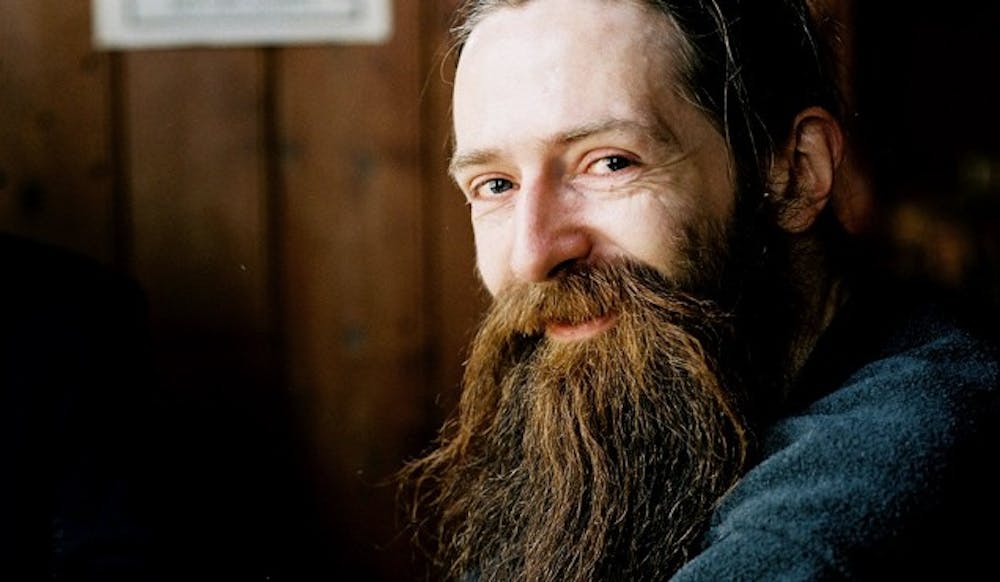Students gathered in Steinberg-Dietrich Hall on Oct. 12 to learn about the possibility of human immortality.
Aubrey de Grey, a biomedical gerontologist, believes that rejuvenation biotechnology — the repair of damage due to aging — can reverse the negative effects of aging that humans endure throughout their lifetimes.
De Grey, the co-founder of the Strategies for Engineered Negligible Senescence Research Foundation, has spent nearly two decades researching the aging process. His talk was hosted by Penn Effective Altruism, an organization that seeks to find the most effective ways to do good.
Logan Lender, College sophomore and external events chair for Penn Effective Altruism, discussed why the organization decided to host de Grey.
“In spite of what it may seem like, this research is not just the stuff of science fiction,” Lender said. “It is feasible that life can be extended in the near future, so it is an effective cause to focus on, since our goal is to maximize happiness and minimize suffering in the world.”
De Grey compared human bodies to machines, arguing that aging to humans and machines can be repaired with a “maintenance approach.”
“Aging in nonliving machines, like cars or airplanes, and aging in living machines, like humans, is pretty much the same thing,” he said. “Any machine with moving parts gets damaged as a consequence of its normal operations.”
De Grey explained that the life-long accumulation of seven types of damage to the body is what eventually leads to the pathology of old age. His research focuses on repairing the damage and preventing its accumulation, rather than preventing the damage itself.
Sens Research Foundation, founded in 2009, applies rejuvenation biotechnology to cure age-related disease. Grey believed the foundation would receive an influx of donations after Peter Thiel, co-founder of PayPal, began making annual contributions, but it continues to struggle with a lack of funds.
De Grey said the field’s lack of funds was likely the result of what he calls “rational denial.”
“We have a skewed problem of people clinging to the certainty that aging is absolutely inevitable … in preference to the uncertainty of not knowing whether the fix for aging is going to come along in time for you,” he said.
Though “the overwhelming majority of humanity does not think [his research] is a good thing to prioritize,” de Grey said he remains determined to prove that immortality is possible.
College sophomore Mihal Zelenin said he was impressed with the "concrete progress" that has been made in the field.
“I definitely think immortality can be achieved eventually, and this makes me a bit more optimistic that it might happen within my lifetime,” Zelenin said.



